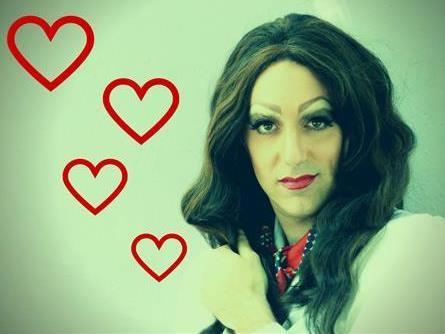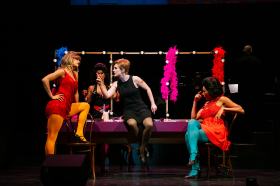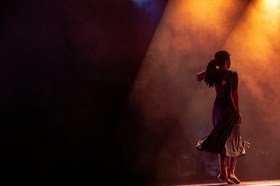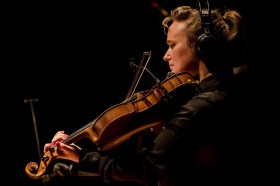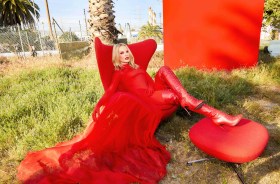The first of three self-contained acts that comprise Harvey Fierstein’s 1982 Torch Song Trilogy, International Stud introduces us to Arnold Beckoff (Jacob Antolini), a drag performer whom we first meet offstage, at the legendary Greenwich Village backroom bar from which the play takes its name.
Declaiming at the outset his disillusionment with love, the narrative follows Arnold’s ill-fated affair with Ed (Adam Hetherington), presented here as a sturdy and stiff-suited producer type, who too quickly becomes a distant and unavailable lover, eventually leaving Arnold for the pursuit of a comfortable, more conventional domesticity.
Revolutionary at the time of its conception, the Torch Song Trilogy has been cited by Charles Busch as ‘the first Tony-winning smash to focus on gay lives,’ first staged ‘at the height of the post-Stonewall clone era.’ The play was significant as a challenge ‘to both gay and straight audiences to champion an effeminate gay man’s longings for love and family.’
While this may have been what made Fierstein’s work groundbreaking in its own time, in the current moment the play’s sentiment falls somewhat flat.
The problem with universal problems is that they have all already been explored at such great length, so that the challenge in their re-representation is in refreshing the peculiarities of their impact on particular lives.
It is unfortunate then that this production, directed by Meredith Fuller, overlooked an opportunity to more dynamically detail this exposition of gay male relations.
Played more tragedy than comedy, our irrepressibly deflated and insufferably romantic protagonist produces pathos, but falls short of our sympathy. The absence of self-awareness, patience for Arnold’s self-pity and desperate longing quickly wears thin.
Confusing the perceived authenticity of a character for the sincerity of their verbal expression, Arnold, in this instance, trades the delicate counterpoise of double-entendre for sentimentality-in-earnest.
Meanwhile, it is Ed who earns our sympathies, battered about as he is by Arnold’s caterwauling, and we are left to wonder what it is that keeps bringing him back.
By playing Fierstein’s trailblazing hero-of-his-own-story straight, Arnold loses the wink and wrinkle of humour and nuance. Without impressing any sort of knowingness into Arnold’s ever over-purpling turns-of-phrase, Antolini’s performance becomes all melodrama and no irony: rendering camp uncanny.
Although the circumstances presented are by no means unfamiliar to the contemporary experience of the gay (cis white male) twenty-something, its staging more than thirty years on only causes us to question the behaviour of its protagonist, which can only serve to expose his and, perhaps, our own naive subscription to outdated ideals.
As a consequence, this production of International Stud loses much of the energy that might have been generated by a more imaginative interpretation, and a more concerted effort to open the text up to alternate possibilities for a contemporary audience.
It’s not that the play isn’t worth staging or the conversation irrelevant: only that the restaging of any canonical work needs to consider its purpose, and ask whether, perhaps, the conversation should have made far more considerable progress by now.
Rating: 2.5 stars out of 5
International Stud
Written by Harvey FiersteinDirected by Meredith Fuller
with Jacob Antolini, Adam Hetherington, Caitlin Berwick and Paddy Adeney
Lighting, Stage Set, Props, Design: Lionel Tom Curtis-Fry
Costume Art Designer: Ash Hoskin
The Butterfly Club
10 – 14 February 2016

